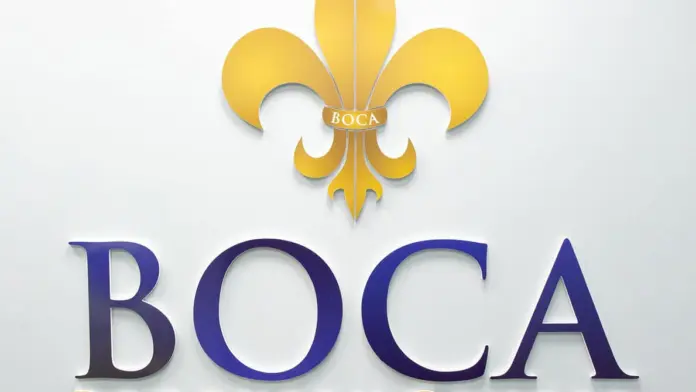About Boca Recovery Center – Ventnor City
Boca Recovery Center offers quality drug and alcohol addiction treatment in several locations throughout Florida, Indiana and New Jersey. Our Ventnor City, New Jersey location houses our administrative offices. We don’t provide treatment at this location but you can begin your recovery journey by using this as a starting point. Ventnor City is a small town with a population of just over 9,000 people located on Absecon Island along the Jersey Shore.
Our luxurious settings and master’s level addiction therapists contribute to our ranking in the top 10% of rehabs in the country. Our offices are just south of Atlantic City in a residential and family-friendly community with a 1.7-mile boardwalk connecting to the Atlantic City Boardwalk. Visitors and residents enjoy various outdoor recreational activities including watersports and a fishing pier.
At our treatment locations, your customized program is based on a comprehensive diagnostic evaluation. This helps us identify your addiction, level of severity, medical conditions and co-occurring mental health disorders. We have served more than 10,000 people who have substance use disorders and co-occurring mental health conditions. This combination is called dual diagnosis and requires integrated and concurrent treatment to be successful.
Mental health conditions affect substance use disorders and the converse is also true. Unless both diagnoses are treated simultaneously then the rate of success drops dramatically. Integrated treatment requires a special skill and expertise that our mental health and addiction specialists possess.
Your personalized treatment plan may include a range of services from medical detoxification in a residential treatment setting to outpatient treatment options offered at three intensity levels. If you experience opioid or alcohol use disorder, you may also benefit from medication-assisted treatment to reduce withdrawal symptoms and cravings during ongoing treatment.
It’s our mission to empower you with the tools and direction needed to change your life through our highly qualified and experienced staff, evidence-based therapies and medical protocols. Our staff works together to promote your recovery, treating everyone with respect and dignity throughout the process. Each of our locations strives to meet and exceed the highest level of service by designing and implementing programs just for you. We are accredited by The Joint Commission at all locations and licensed by the region’s State governing body.
We accept most major insurance providers and work hard to maximize your insurance benefits. We will verify your insurance coverage before beginning treatment and help estimate your potential out-of-pocket expenses. If your health insurance does not cover your treatment then we also offer affordable no-interest and flexible payment plans to make treatment more accessible. You might be eligible to use your health savings account or flexible spending account. If you are uninsured then you can speak with our financial counselors about financial assistance.
Rehab Score
Gallery

Location
Accepted Insurance










Other Forms of Payment
Private insurance refers to any kind of healthcare coverage that isn't from the state or federal government. This includes individual and family plans offered by an employer or purchased from the Insurance Marketplace. Every plan will have different requirements and out of pocket costs so be sure to get the full details before you start treatment.
Self-pay involves paying for treatment out of your own pocket. You can use savings or credit, get a personal loan, or receive help from family and friends to fund your treatment. If you don't have insurance or your insurance plan doesn't cover a specific program, self-pay can help ensure you still get the care you need.
Military members, veterans, and eligible dependents have access to specific insurance programs that help them get the care they need. TRICARE and VA insurance can help you access low cost or no cost addiction and mental health treatment. Programs that accept military insurance often have targeted treatment focused on the unique challenges military members, veterans, and their families face.
Addiction Treatments
Levels of Care
Treatments
Drug addiction is a chronic disease that can happen to anyone. It affects your brain function and behavior and can lead to physical and psychological dependency. At Boca Recovery, our treatment programs are designed to address the many facets of drug addiction and increase your potential for sobriety and sustainable recovery.
Alcoholism or alcohol use disorder can lead to physical health issues, relationship problems, job loss, financial strain and interactions with the criminal justice system. If you have difficulty controlling your drinking because of a physical or emotional dependence on alcohol then we can help break that addiction and restore and repair your personal and professional life.
An opioid addiction involves dependency on prescription painkillers or illegal drugs. The addiction influences your brain receptors causing cravings and withdrawal symptoms. Without treatment, it can lead to severe physical health problems and increase the risk of a deadly overdose. Our program at Boca Recovery begins with medical detox using medications to reduce withdrawal symptoms while transitioning you to evidence-based treatment.
Dual diagnosis is the medical term used to describe when a person has a mental health condition and an addiction. These conditions often interact, which complicates recovery. Integrated treatment programs are critical to address both issues simultaneously. This requires highly trained and experienced staff which we can offer at our treatment locations.
Mental health conditions and substance abuse have an interrelated and complicated relationship. One condition can exacerbate the other. This interplay requires comprehensive care and lifestyle changes to address the root cause and promote mental and physical health. Our treatment locations address your addiction and mental health disorder using evidence-based and holistic therapies that support sustainable recovery.
Programs


Clinical Services
Cognitive Behavioral Therapy (CBT) is a therapy modality that focuses on the relationship between one's thoughts, feelings, and behaviors. It is used to establish and allow for healthy responses to thoughts and feelings (instead of unhealthy responses, like using drugs or alcohol). CBT has been proven effective for recovering addicts of all kinds, and is used to strengthen a patient's own self-awareness and ability to self-regulate. CBT allows individuals to monitor their own emotional state, become more adept at communicating with others, and manage stress without needing to engage in substance abuse.
Dialectical Behavior Therapy (DBT) is a modified form of Cognitive Behavioral Therapy (CBT), a treatment designed to help people understand and ultimately affect the relationship between their thoughts, feelings, and behaviors. DBT is often used for individuals who struggle with self-harm behaviors, such as self-mutilation (cutting) and suicidal thoughts, urges, or attempts. It has been proven clinically effective for those who struggle with out-of-control emotions and mental health illnesses like Borderline Personality Disorder.
Group therapy is any therapeutic work that happens in a group (not one-on-one). There are a number of different group therapy modalities, including support groups, experiential therapy, psycho-education, and more. Group therapy involves treatment as well as processing interaction between group members.
In individual therapy, a patient meets one-on-one with a trained psychologist or counselor. Therapy is a pivotal part of effective substance abuse treatment, as it often covers root causes of addiction, including challenges faced by the patient in their social, family, and work/school life.
Motivational Interviewing (MI) is a clinical approach to helping people with substance abuse issues and other conditions shift behavior in positive ways. It is more goal-oriented than traditional psychotherapy, as MI counselors directly attempt to get clients to consider making behavioral change (rather than wait for them to come to conclusions themselves). Its primary purpose is to resolve ambivalence and help clients become able to make healthy choices freely.
Trauma therapy addresses traumatic incidents from a client's past that are likely affecting their present-day experience. Trauma is often one of the primary triggers and potential causes of addiction, and can stem from child sexual abuse, domestic violence, having a parent with a mental illness, losing one or both parents at a young age, teenage or adult sexual assault, or any number of other factors. The purpose of trauma therapy is to allow a patient to process trauma and move through and past it, with the help of trained and compassionate mental health professionals.
Most experts in couples therapy are trained in several modes of treatment. This allows your therapist to draw from various techniques to personalize your therapy for your needs. This may include cognitive, emotional, and behavioral methods, which are all designed to help you strengthen your relationship.
Research clearly demonstrates that recovery is far more successful and sustainable when loved ones like family members participate in rehab and substance abuse treatment. Genetic factors may be at play when it comes to drug and alcohol addiction, as well as mental health issues. Family dynamics often play a critical role in addiction triggers, and if properly educated, family members can be a strong source of support when it comes to rehabilitation.
Life skills trainings involve all the skills a person must have in order to function successfully in the world. These include time management, career guidance, money management, and effective communication. Truly successful addiction recovery is based on the ability to not only live substance-free, but to thrive. Life skills teaches the practical necessities of functioning in society, which sets clients up for success in life, and therefore sobriety.
For best results, nicotine replacement therapy (NRT) should be combined with other methods to quit smoking. While NRT addresses physical dependence, other quit program elements are necessary to address emotional and mental dependence. Together, these supports can help you successfully quit tobacco for good.
Amenities
-
Residential Setting
-
Private Rooms
-
Gym
-
Yoga Studio
Accreditations

LegitScript has reviewed Boca Recovery Center – Ventnor City as part of their certification program, and has determined that it meets the LegitScript standards for legality, safety and transparency.
LegitScript verified in

State Licenses are permits issued by government agencies that allow rehab organizations to conduct business legally within a certain geographical area. Typically, the kind of program a rehab facility offers, along with its physical location, determines which licenses are required to operate legally.
State License: New Jersey

The Joint Commission, formerly known as JCAHO, is a nonprofit organization that accredits rehab organizations and programs. Founded in 1951, the Joint Commision's mission is to improve the quality of patient care and demonstrating the quality of patient care.
Joint Commission Accreditation: Yes
